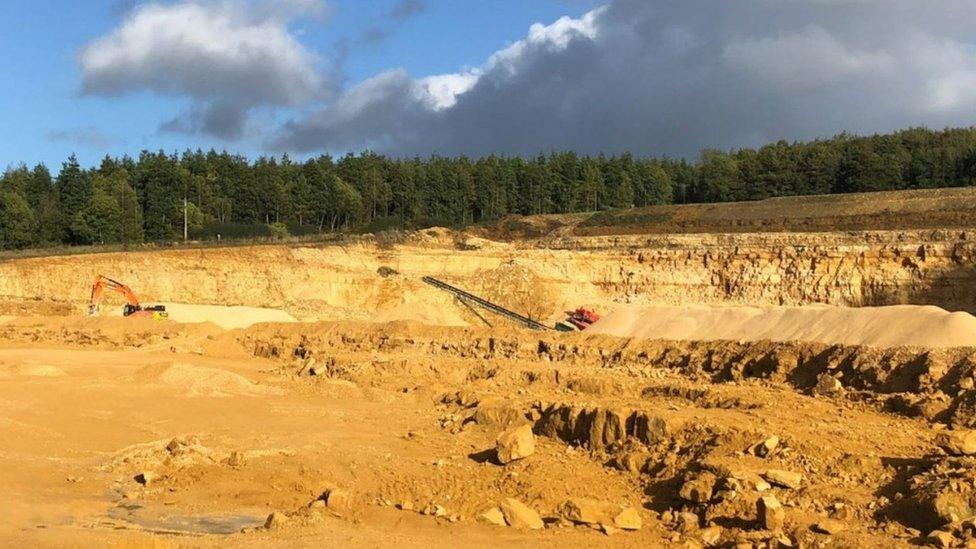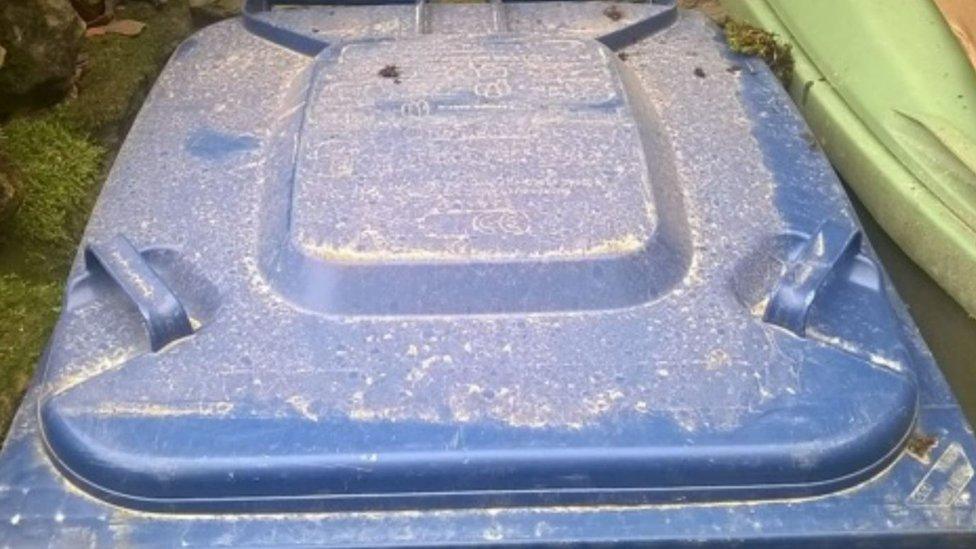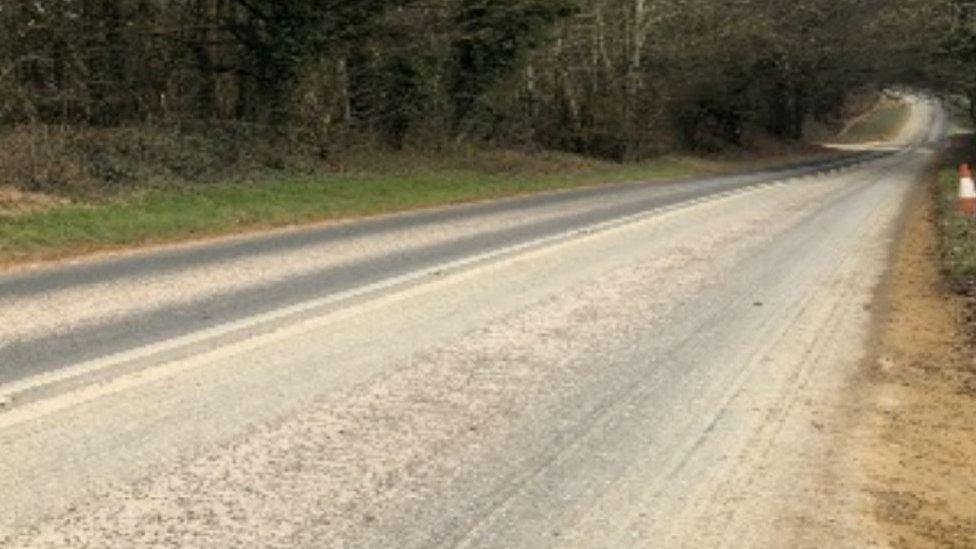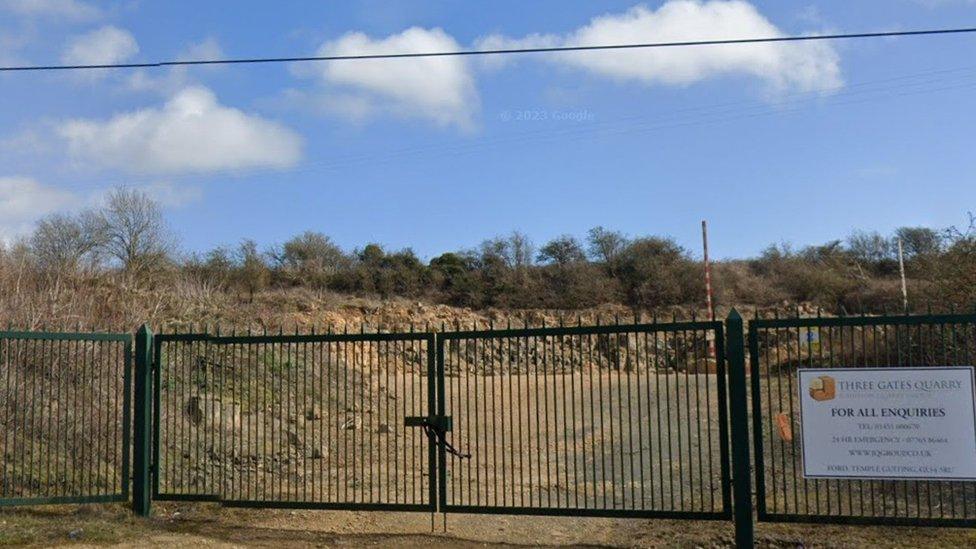Temple Guiting quarry to increase exports despite dust concerns
- Published

Johnson Quarry Group exports stone from Oathill Quarry in Fiddlers Green, Temple Guiting
A quarry plans to double the amount of stone it exports, despite residents' claims they are already unable to open their windows due to high dust levels.
Johnston Quarry Group in Temple Guiting has been given permission to export 100,000 tonnes yearly, up from 50,000 tonnes previously.
Concerned Cotswolds residents objected to any futher lorry movements.
However, Gloucestershire County Council approved the plans after receiving a detailed transport plan for the site.
County Councillor Mark MacKenzie-Charrington, Cons, said he recognised the importance of quarries but added they "must not ride roughshod" over the villagers.

Residents objected to the plans due to concerns regarding dust
The group's proposals were originally considered by the county council's planning committee at Shire Hall in September.
But the councillors deferred any decision to receive a detailed transport plan for the application.
It was approved on 21 March and included retrospective consent for staff offices and welfare facilities too.
Temple Guiting Parish Council had opposed the scheme, along with dozens of residents.
Parish councillor Stephen Gower raised concerns regarding the findings of a study that examined the dust and noise levels generated by a cluster of quarries near the B4077.
He said the report suggested the number of HGV movements should be reduced and not increased.

The number of HGV movements had reached an "unacceptable level", county councillor Mark MacKenzie-Charrington said
County councillor Mr MacKenzie-Charrington said the number of HGV movements in the area had already reached an unacceptable level.
Plans have also been approved to limit HGV movements from the quarry to 30 per day during January, December and July, peaking at 100 per day in August and September.
The councillor said the impact of this included "early morning noise, vibration... dust, damage to the roadside and loss of quiet enjoyment".
He told a previous meeting that dust was so bad in nearby villages, such as Ford, that residents could not open their windows nor sit in their gardens.
"[They] have to regularly wash down their houses and cars to reduce dust. In winter months, dust is replaced with mud," Mr MacKenzie-Charrington said.

Follow BBC Gloucestershire on Facebook, external, X, external and Instagram, external. Send your story ideas to us on email, external or via WhatsApp on 0800 313 4630, external.
Related topics
- Published23 March 2024

- Published15 August 2023
